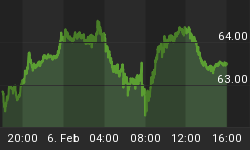As a general rule, the most successful man in life is the man who has the best information
Our agriculture system is concentrated on producing a very few staple crops - there is a very serious lack of crop diversity. Corn, wheat, rice and soy are the main staples and production is oftentimes half a world away from where the majority of the crop would be consumed. The world's extreme poor exist almost exclusively on what is a 'buy today, eat today' plant based diet - wheat, corn, soy or rice provide the bulk of their calories.
Taken together, this means if we get hit by a particularly bad harvest in one area, if a severe El Nino strikes, or more localized severe weather phenomena strikes, food supplies can get totally out of control in many countries.
Considering that the global food supply chain is weak (easily disrupted by lack of transportation, weather, insurgency, stealing) and non-existent in many areas then you have a recipe for potential disaster in many regions of the world.
Inefficient supply chains, intensified weather phenomena and a race to secure dwindling supplies of commodities by developed economies (and their richer inhabitants) all mean the very basics of human survival will become increasingly scarce for the poorer people in the developing world.
Hundreds of millions of marginalized people, people perhaps counted by the billions, across all nations, will feel the extreme pinch of increased prices, across all asset classes, on their household budgets. But especially so in what those people need the most - water, food and clothing - the bare essentials necessary for survival. Socio-economic turmoil - lawlessness, poverty, lack of adequate medical facilities and attention, low to no employment, low wages, disease, no clean drinking water or water for irrigation and shortages of food or unaffordable food can all cause socio-economic pressure to build in many countries.
The increase in the price of food is the straw that breaks the camel's back - the real cause of global angst is the rising cost of survival. Many people, already living in poverty, and those on poverties edges, are far less capable of absorbing the increased costs of what is really just basic survival for themselves and their families. Yet this is the first group of people who will be impacted by the coming unstoppable waves of inflation and real shortages - whether localized or temporary because of supply chain breakages or poor harvests.
The most severe consequences of non-existent or more expensive staple foods are first felt in developing countries whose citizens spend an exorbitant percentage of their incomes feeding themselves and their family compared to families in the western world. Almost half of the planets population lives on less than $2.50 a day - roughly 1.4 billion people live on less than $1.25 per day. When food prices soar these people lack the money to feed themselves and their children - when your living on a couple of dollars a day, or less, and most of your income already goes to feed your family there's no money to cover a price spike in the cost of survival.
On average developing countries citizens spend a much larger percentage of their wages on food than do their counterparts in developed nations. Some published estimates are as high as 50 to 60 percent of income going towards food - when, not if, a food supply shortfall happens, for whatever reason, then almost any city, and almost any countryside could be aflame with strikes, riots and civil disobedience.
When a countries citizens get upset, when the drama hits the streets, when the riots start, regime change in many of these developing countries can quickly become a reality.
Conclusion
"Angst denotes the constant struggle one has with the burdens of life that weighs on the dispossessed." urbandictionary.com
Narrowly focusing on increasing production as the Green Revolution did cannot alleviate hunger because it failed to alter three simple facts:
- An increase in food production does not necessarily result in less hunger - if the poor don't have the money to buy food increased production is not going to help them
- A narrow focus on production ultimately defeats itself as it destroys the base on which agriculture depends - topsoil and water
- To end hunger once and for all, we must make food production sustainable and develop secure distribution networks of needed foodstuffs
The combination of a supply chain breakdown, crippling national debts, out of control government spending, climate change and runaway inflation might cause a global food crisis. Is the rising cost of survival on your radar screen?
If not, maybe it should be.















